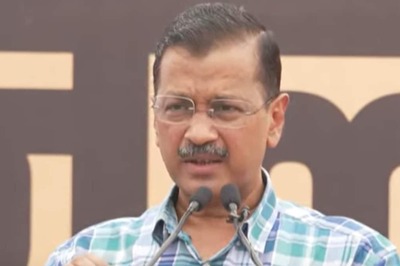
views
The Supreme Court on Thursday held that the Enforcement Directorate (ED) could not arrest an accused under Section 19 of the Prevention of Money Laundering Act (PMLA) after the special court has taken cognisance of the money laundering complaint.
If the ED wanted custody of such an accused, the probe agency would have to apply to the special court, reported news agency PTI.
“After cognisance is taken of the offence punishable under Section 4 of the PMLA based on a complaint under Section 44, the ED and its officers are powerless to exercise powers under Section 19 to arrest the person shown as accused in the complaint,” the court said.
“If the ED wants custody of the accused who appears after service of summons for conducting further investigation of the same offence, ED will have to seek custody of the accused by applying to the Special Court. After hearing the accused, the special court must pass an order on the application after recording brief reasons. While hearing the application, the Court may permit custody only if it is satisfied that custodial interrogation is required even though the accused was never arrested under Section 19,” the bench comprising Justices Abhay S Oka and Ujjal Bhuyan was quoted as saying by Live Law.
Section 19 of the PMLA empowers authorised officials of the ED to arrest persons based on the material in their possession, providing a reasonable basis to suspect that an individual has committed an offence punishable under the law.
The crux of the issue before the Supreme Court was whether the execution of the bond by an accused for showing his presence before the court under Section 88 of the Code of Criminal Procedure (CrPC) (power to take bond for appearance) would amount to applying for bail to make twin conditions of bail under Section 45 of the Prevention of Money Laundering Act, 2002, applicable.
Section 45 of the PMLA speaks about the conditions set for bail and states that no accused person shall be granted bail unless “the Court is satisfied that there are reasonable grounds for believing that he is not guilty of such offense and that he is not likely to commit any offense while on bail.”
The bench also said if the ED wanted to conduct further probe in the same case, it might arrest a person not shown as an accused in the complaint already filed, provided the requirements of Section 19 are fulfilled.
OTHER OBSERVATIONS
The court said, “If the accused was not arrested by the ED till the filing of the complaint, the special court while taking cognisance of the complaint as a normal rule, must issue a summon to the accused and not a warrant. Even if the accused is on bail, a summons must be issued.”
The court said, “If the accused appears before the special court in response to a summon, it cannot be treated that he is in custody. Therefore, the accused doesn’t need to apply for bail. However, the special court can direct the accused to furnish bonds in terms of Section 88 of the CrPC.”
It added that the bond furnished in terms of Section 88 CrPC was only an undertaking. “Therefore, the order accepting bond under Section 88 does not amount to grant of bail and hence the twin conditions of Section 45 of the PMLA do not apply to it,” it said.
Explore in-depth coverage of Lok Sabha Election 2024 Schedule, Voter Turnout, Upcoming Phase And Much More At News18 Website




















Comments
0 comment